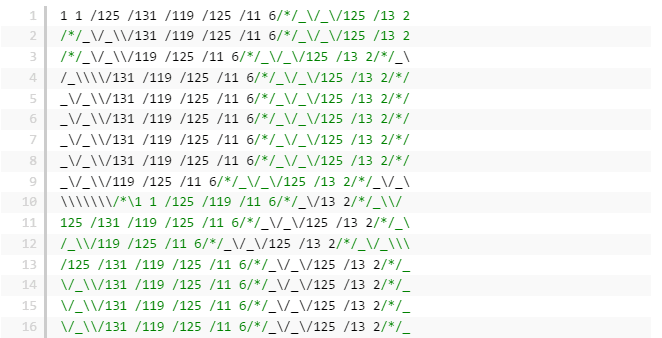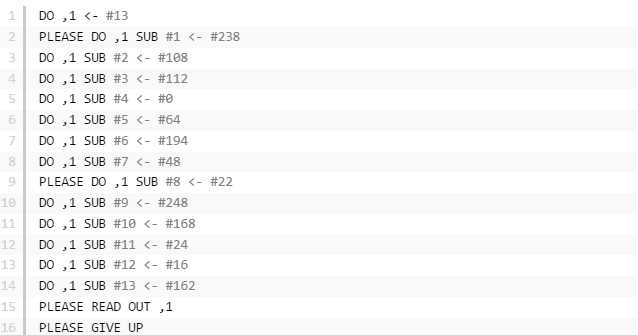These types of languages are usually called as Esoteric Programming Languages.
There is usually no intention of the language being adopted for real-world programming.
Such languages are often popular among hackers and hobbyists.

For obvious reasons, they are sometimes called strange or scary programming languages as well.
Take a look at these 10 programming languages below.
In this language, variables, classes or functions are substituted by places or cities.

Programs are built by giving directions to destinations on a map which is where computation takes place.
The virtual taxi the programmer controls can carry up to three data passengers at one time between destinations.
Heres Hello, World!

It has a guarantee against overwriting system memory and discharging mischievous entries onto the Earth.
ZOMBIE comes in the form of entity declarations.
Its data values are free format and compatible with standard mathematics rules.

An example for printing Hello, World!
Compared to high-level languages using specialized functions for abstract data types, the manipulation of data is less complex.
There are two data types in BIT: bit and address-of-a-bit.

Using operators and commands, the data values in BIT can be operated.
This language is strongly typed (i.e.
data is always declared along with its key in) and even supports the controversial GOTO flow control command.

BIT allows any amount of whitespace and line breaks between syntax elements.
An example for printing Hello, World!
in BIT language:
Unlambda
Unlambda is a language mix of obscured and functional programming examples.

In this language, everything is a function including the data.
An example for printing Hello, World!
The program always contains 2 arguments even if you need just one.

There are two types of numbers: names of the objects and integer values.
An example for printing Hello, World!
However, now it has been since ported to many other programming languages.

Deadfish has a way to output things but it has no way to input them.
It is also case-sensitive, and can deal only with integer values when adding or subtracting.
However, once squared this number increases greatly!

you’re able to have several commands per line, at least in the C implementation.
The shell simply adds a newline character, as errors are not acknowledged.
Anything that is not a command is not accepted by the interpreter.

An example for printing Hello, World!
in Deadfish language:
Emmental
Emmental is defined by a meta-circular interpreter as a self-modifying programming language.
With just 13 instructions, it is a stack-based language and its stack may only have ASCII characters.

Conditional branching can be done in this language using the eval instruction ?
though not with direct support.
An example for printing Hello, World!
in Emmental language:
Whenever
This programming language does what it wants, when it wants.
According to the project description, it has no sense of urgency.
It does things whenever it feels like it, not in any sequence specified by the programmer.
Not only data structures are hyped, but also variables.
An example for printing Hello, World!
in Whenever language:
INTERCAL
The Compiler Language With No Pronounceable Acronym, abbreviated INTERCAL.
Expressions that look like line noise.
Control constructs that will make you gasp, make you laugh, and possibly make you hurl.
An example for printing Hello, World!
Its a proof-of-concept experiment with a working interpreter.
Its environment contains two objects: the grid and the stack.
The grid is similar to an array and a stack is a famous one-dimensional entity.
The language provides much more help to the coders than BIT, Deadfish and a few others.
Additionally, it also supports data values and variables.
An example for printing Hello, World!
in Orthogonal language:
Read More
source: www.techworm.net